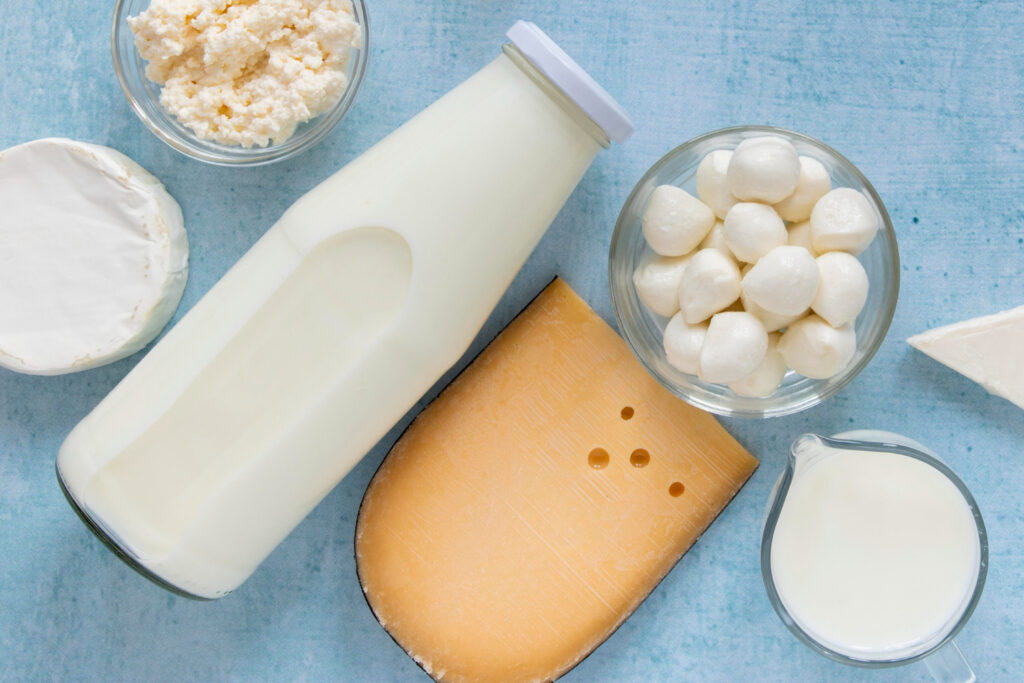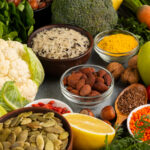
Table of Contents
Overview
Cholesterol management is essential for maintaining heart health, but not all foods that affect cholesterol levels are obvious. While many are aware that red meat and fried foods can raise cholesterol, other seemingly innocent foods can also be detrimental. This article explores surprising foods that might be undermining your efforts to maintain healthy cholesterol levels.
1. Deceptive
Food products labeled as “low cholesterol” can be misleading. These items might be low in cholesterol but can still be high in saturated fats, which raise LDL (“bad”) cholesterol levels. Always read the nutrition labels carefully to check for saturated fat content, and be mindful of portion sizes to avoid overconsumption. This approach helps ensure that your efforts to lower cholesterol aren’t undermined by hidden saturated fats.
2. Coffee
While coffee is a morning staple for many, certain brewing methods can increase your cholesterol levels. French press, Turkish coffee, and espresso allow a compound called cafestol to pass through, which can raise LDL cholesterol. If you can’t give up your favorite brew, consider switching to drip coffee, where the filter captures cafestol, making it a safer option for your cholesterol.
3. Thai Takeout
Thai food is often perceived as a healthy option, but the use of coconut milk in many dishes can significantly raise your cholesterol levels. Coconut milk is high in saturated fats, making it a hidden threat to your heart health. When ordering Thai food, opt for stir-fries, grilled dishes, or soups made without coconut milk. Additionally, choosing lean proteins like chicken or tofu and adding extra vegetables can help mitigate the impact.
4. Granola
Related how lentils can lower your cholesterol levels
Granola is often marketed as a healthy breakfast option, but many brands contain high levels of saturated fats and added sugars. Some “low-fat” versions might actually contain more unhealthy fats to compensate for the reduced flavor. When choosing granola, look for options that are high in fiber and use natural sweeteners like dried fruit or honey. Pairing granola with a source of lean protein, like Greek yogurt, can also help balance your meal.
5. Shrimp
Despite being a low-calorie source of protein, shrimp is high in dietary cholesterol. A single serving of shrimp can contain nearly 190 milligrams of cholesterol, which is a significant portion of the recommended daily intake. While shrimp can still be enjoyed in moderation, those with high cholesterol should consider alternatives like scallops, which have a lower cholesterol content.
6. Understanding Cholesterol: Why It’s Important
Cholesterol plays a vital role in the body, helping to build cell membranes and produce hormones. However, an excess of LDL cholesterol can lead to plaque buildup in the arteries, increasing the risk of heart disease and stroke. Regularly monitoring cholesterol levels and making dietary adjustments are crucial steps in maintaining heart health and preventing long-term complications.
7. Foods to Avoid for High Cholesterol
Certain foods are well-known for their ability to raise cholesterol levels, particularly those high in saturated and trans fats. These include:
- Red Meat:Beef, pork, and lamb are rich in saturated fats and can contribute to higher LDL cholesterol levels.
- Full-Fat Dairy: Products like whole milk, cream, and butter are high in saturated fats, making them a risk factor for high cholesterol.
- Fried Foods: Deep-fried snacks and fast food items contain trans fats, which are particularly harmful to heart health.
- Baked Goods and Sweets: Many pastries, cookies, and cakes are made with trans fats, contributing to elevated cholesterol levels.
- Tropical Oils: Palm oil and coconut oil, while popular in cooking and baking, are high in saturated fats and can increase LDL cholesterol.
8. High Cholesterol Foods That Are Actually Beneficial
Not all cholesterol-rich foods are harmful. Some foods, despite their cholesterol content, offer significant health benefits when consumed in moderation:
- Eggs: Though high in cholesterol, eggs are a great source of protein and do not significantly impact LDL levels.
- Cheese: Full-fat cheese, when eaten in moderation, can provide essential nutrients without drastically raising cholesterol levels.
- Shellfish: Despite their cholesterol content, shellfish like shrimp and clams are rich in omega-3 fatty acids and can be part of a heart-healthy diet.
- Pasture-Raised Steak: This type of beef is lower in cholesterol than grain-fed options and is rich in heart-healthy omega-3s.
- Organ Meats: While high in cholesterol, organ meats are nutrient-dense and can be included in a balanced diet in moderation.
- Sardines: These small fish are packed with nutrients and omega-3 fatty acids, offering heart-protective benefits despite their cholesterol content.
- Full-Fat Yogurt: Full-fat yogurt can help reduce LDL cholesterol and is beneficial for gut health when consumed in moderation.
9. Improving Cholesterol Levels Through Diet
Managing cholesterol levels involves more than just avoiding certain foods. Embracing a diet rich in fiber, lean proteins, and healthy fats can significantly improve your cholesterol profile. Reducing saturated fat intake, limiting alcohol, and cutting back on processed foods can also help. Incorporating more fruits, vegetables, and whole grains into your diet not only helps manage cholesterol but also supports overall health.
The Takeaway
Understanding the foods that impact your cholesterol levels is crucial for heart health. By making informed choices about what you eat, you can effectively manage your cholesterol and reduce the risk of heart disease. Regular check-ups, combined with a balanced diet, are key to maintaining healthy cholesterol levels and ensuring a long, healthy life
Frequently Asked Questions
What types of coffee are bad for cholesterol?
Coffee brewed using methods like French press, Turkish coffee, and espresso can raise cholesterol levels due to a compound called cafestol. If you’re concerned about cholesterol, opt for drip coffee, where the filter removes most of the cafestol.
Why is coconut milk bad for cholesterol?
Coconut milk is high in saturated fats, which can increase LDL (“bad”) cholesterol levels. Frequent consumption of coconut milk-based dishes, especially in Thai cuisine, can contribute to higher cholesterol, so it’s best to limit intake or choose alternative dishes.
Is shrimp bad for cholesterol levels?
Shrimp is relatively high in dietary cholesterol, with one serving containing almost 190 milligrams. While it can still be enjoyed in moderation, those with high cholesterol should consider lower-cholesterol seafood options like scallops.
Are granola and granola bars unhealthy for cholesterol?
Not all granola is bad, but many commercial brands are high in saturated fats and added sugars, which can negatively impact cholesterol levels. It’s important to choose granola with natural sweeteners and minimal saturated fats to keep your cholesterol in check.
Can eggs raise my cholesterol levels?
Although eggs are high in cholesterol, they don’t have a significant impact on LDL cholesterol for most people. Eggs can be part of a healthy diet when eaten in moderation, especially when paired with other nutrient-rich foods.











